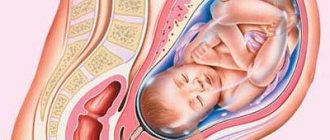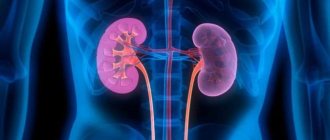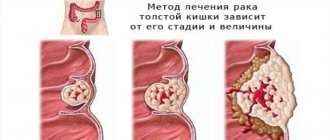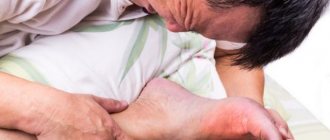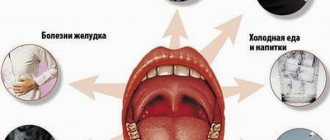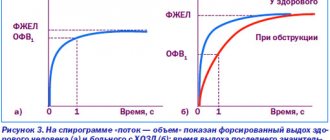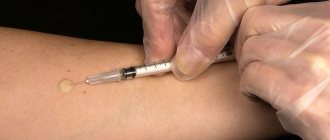What is kidney inflammation
This disease is called nephritis and there are several types, depending on which part of the organ is affected. The development of the inflammatory process in the glomeruli, vessels, pyelocaliceal apparatus or kidney tubules begins for various reasons. Nephritis often appears against the background of hypothermia or as a complication of diseases of the genitourinary system. An inflammatory process occurs in the kidneys due to pathogenic microbes and viruses. Frequent causative agents of bacterial infections are staphylococci, E. coli, enterococci.
Treatment
The main goal of treatment is to identify the source of the disease. Depending on the type of bacteria, therapeutic actions will be applied to eliminate this negative factor. In terms of conservative treatment, the following types of drugs are used:
- Antibiotics, directed action - are used taking into account the diagnosed pathogen microbe, which can influence the positive course of the disease.
- Medicines that improve kidney function and activate the filtration capabilities of the organ.
- Antihistamines - to prevent allergic reactions.
- Medicines aimed at improving blood supply and reducing pressure on blood vessels.
- Uroseptics are used to cleanse the urinary system of pathogenic microflora.
- Diuretics are diuretics that remove all retained fluid from the body.
In the absence of positive dynamics after therapeutic actions, plasmapheresis may be prescribed - a blood transfusion procedure to cleanse toxins and waste.
Proper nutrition during treatment for kidney inflammation is one of the main components of recovery. It is necessary to completely avoid fatty meats and broths. Salted, canned, pickled foods should be excluded from consumption. The diet should consist of simple and light food that does not overload the internal organs. High amounts of fiber, steamed vegetables, cereals and fruit salads are welcome and encouraged to be consumed during illness.
The first symptoms of kidney inflammation should be a signal to visit a medical facility. The acute form, depending on the type of harmful bacteria, can quickly develop into a chronic form, where the symptoms will be blurred, but the effect will remain the same. The disease will gradually lead to disruption of the normal functioning of the kidneys.
Symptoms
Inflammatory kidney diseases occur in acute or latent form. Specific signs depend on the shape and type of jade. Treatment should begin immediately, preventing the disease from entering the chronic stage . Acute pyelonephritis is characterized by elevated body temperature up to 40 degrees. Additional symptoms of kidney inflammation: fever, headache, chills.
In chronic pyelonephritis, periods of exacerbation and remission are observed. In the first case, the signs of the disease are the same as in the acute form. If the disease often makes itself felt, the patient's glomeruli may die. In addition, against the background of frequent exacerbations, the development of chronic renal failure is possible. In this regard, you should not delay complex treatment.
The main signs of bacterial infections in the kidneys are presented below:
- excessive sweating;
- thirst;
- high body temperature;
- nocturia;
- weakness;
- frequent and painful urination;
- swelling of the face and limbs;
- poor appetite;
- dry mouth;
- pain in joints and muscles;
- nausea;
- vomit;
- peeling of the skin;
- dehydration;
- high blood pressure;
- high tone of the abdominal muscles;
- pain in the lower back, right or left side;
- cloudy urine with flakes.
Among women
The anatomical structure of the body of men and women is different. In this regard, the symptoms of kidney inflammation in the fairer sex should appear more clearly. Women's urethra is shorter than men's, so it is easier for infectious agents to enter the bladder and cause inflammation. After this, swelling of the limbs and face and other signs of primary nephritis appear.
In acute renal inflammation in women, the following symptoms are observed:
- chills;
- sweating;
- acute pain in the lower back;
- intoxication;
- nagging pain in the abdomen;
- high body temperature, up to 40 °C;
- dizziness;
- painful urination that spreads to the ureter;
- pyelonephritis and glomerulonephritis (detected by urine analysis).
In men
Representatives of the stronger sex can observe all the standard symptoms of nephritis. However, in men there are additional signs:
- Significant change in the color and odor of urine.
- The appearance of blood streaks in the urine.
- Pain syndrome in the lumbar region.
- Prolonged urinary retention.
- Unstable urge to empty the bladder.
The child has
Mothers should closely monitor the condition of their children so as not to miss the onset of the disease . Signs that a child has inflamed kidneys are not difficult to identify. You should consult a doctor immediately if you notice the following symptoms:
- increased body temperature;
- complaints of pain or crying when urinating;
- complaints of abdominal pain, lower back;
- urinary incontinence or, conversely, prolonged retention;
- change in urine color (becomes darker with noticeable flakes);
- nausea, vomiting (secondary symptoms).
Features of inflammation in men
Kidney inflammation in men has more severe symptoms than in women. The pathology is extremely difficult to treat, the results of conservative therapy are not stable, and there is no long-term effect. This is explained by the physiological characteristics of the male sex; due to the longer urethra, the symptoms differ slightly from the female specifics:
- urination is significantly delayed;
- the color and smell of urine is pronounced due to hematuria;
- painful syndrome in the lumbar region;
- pain when urinating.
Acute nephritis can affect joints, bones and muscle tissue, resulting in pain. Long-term lack of treatment can affect the entire body, which will manifest itself in peeling of the skin, increased sweating and even shortness of breath. Chronic inflammation is latent; diagnosis is made only through a complete examination.
Causes
Nephritis is an unpleasant disease caused by infection. This pathology is characterized by lesions of the renal pelvis, tubules, vessels or glomeruli. Nephritis develops as an independent disease or a complication of urolithiasis, renal colic, gynecological disorders, and inflammation of the male reproductive system. Before starting a course of therapy, it is worth finding out the causes of the disease.
The following factors can trigger the development of kidney inflammation:
- constant long-term hypothermia;
- weak immune system;
- bad habits;
- physical inactivity, blood stagnation;
- excessively active sports;
- poor nutrition;
- untimely emptying of the bladder;
- diabetes;
- long-term treatment with large quantities of antibiotics;
- failure to comply with hygiene rules.
Causes of inflammation
Primary and secondary inflammation of the kidneys in women and men have different causes. So, if an autoimmune disease is caused by developing pathologies, the nephrons are inflamed, then glomerulonephritis can serve as a provocateur. In the secondary form of the disease, the following causes are distinguished:
- diabetes;
- infections;
- renal amyloidosis;
- tumors;
- alcohol necrosis;
- poisoning;
- allergic reaction;
- complications during pregnancy.
Hypothermia, vitamin deficiencies, physical inactivity, malnutrition, and stress can increase the risk of pathology.
Classification
Kidney inflammation is a whole group of pathologies that affect different parts of the organ. Each disease has its own characteristic symptoms and requires special treatment. Below is information with the classification of jades:
- Pyelonephritis develops against the background of an infectious lesion of the pyelocaliceal system and renal parenchyma. The pathogen enters the organ with blood or lymph. Pathology is detected after a urine test (analysis shows an increased content of leukocytes).
- Acute glomerulonephritis is an autoimmune disease. Develops due to inflammation of the renal glomeruli (glomeruli), disruption of the processes of urine excretion and blood purification. As the disease progresses, the glomeruli of the kidneys are replaced by connective tissue. Lack of treatment leads to serious complications, including chronic renal failure.
- Interstitial nephritis is a lesion of organ tissue, swelling of the renal tubules.
- Shunt nephritis. With this type of inflammation, a whole complex of antibodies is deposited around the renal glomeruli.
Late complications
After suffering from kidney inflammation, changes in the functioning of the renal system can be detected several years later.
If a large number of glomeruli are affected, chronic renal failure may develop.
In addition to disrupting the functioning of the organ, the disease can lead to the following conditions:
- urolithiasis, which tends to manifest itself as renal colic. They arise spontaneously and are manifested by severe cutting pains that can knock the patient out of her usual rut for a long time. Renal colic can be treated in a hospital; if significant stone formation occurs, surgical intervention (removal of a kidney stone) is required;
- hydronephrosis;
- nephrosclerosis.
Complications
It is important to promptly identify and begin to treat renal inflammation . Otherwise, the following complications may develop:
- bacteriotoxic shock;
- spread of infection through the blood (urosepsis);
- cystitis (inflammation of the bladder);
- spread of infection to the tissue surrounding the kidney (paranephritis);
- formation of a purulent focus in the kidney;
- renal failure.
Articles on the topic
- Diseases of the urinary system - signs, types and treatment
- Blood in a woman’s urine: what does it mean?
- Roundworms in children - how to treat them at home with medications or traditional medicine recipes
Pyelonephritis
Signs of kidney inflammation may include:
- increased body temperature;
- the appearance of pus in the urine - with pyelonephritis, pathological processes develop rapidly, with the accumulation of pus in the tissues, which is excreted along with the urine;
- pain in the lumbar region;
- the urine becomes cloudy, flakes and sometimes blood clots appear in it.
Most often, pyelonephritis is diagnosed in children and women. Symptoms of kidney inflammation, as well as tests and ultrasound diagnostics confirm the pathology. In the acute form, one kidney is usually affected, and in the chronic form, both are affected.
Kidney inflammation and pregnancy
A very high risk of developing nephritis is observed in women during pregnancy. This is due to a weakening of the body’s protective functions and increased stress on the kidneys. In addition, during pregnancy all diseases worsen, including chronic pathologies of the genitourinary system. Nephritis in women during pregnancy should be treated with extreme caution. Taking antibiotics can negatively affect the fetus. To restore normal kidney function, the patient is prescribed herbal medications, diet, and a sleep regime.
Causes of inflammatory processes
The main function of the kidneys in the human body is to filter blood from cell waste products and convert urine. Infection leads to stagnation of fluid and excessive pressure on the walls of the internal organ, which, in turn, leads to poisoning of the body with retained toxins.
According to statistics, the main cause of nephritis is hypothermia combined with acute respiratory diseases. When the body is weakened and cannot provide adequate resistance, microorganisms enter the blood or urine, affecting any of the components of the kidney. There are:
- Primary inflammation is damage to the kidney with weakened immunity.
- Secondary – develops in the presence of an underlying disease: tuberculosis, syphilis, lupus and others.
A risk factor for developing nephritis is the presence of one of the following diseases:
- diabetes;
- malignant tumors;
- urolithiasis disease;
- genital infections;
- development of renal failure;
- poisoning with heavy metals, poisons or chemicals.
Kidney tissue becomes inflamed quickly if the causative agent is E. coli or coccal infection. Therefore, diagnosis of the cause of nephritis should be timely, and treatment should be started immediately.
Separately, inflammation occurs if disorders are associated with the following parameters:
- the immune system is in a weakened state;
- changes in body temperature;
- the diet is too monotonous;
- violation of the drinking regime;
- inappropriate use of medications.
Diagnostics
To detect nephritis, urologists use various types of tests. The most popular types of diagnostics are presented below:
- CBC (complete blood count);
- Ultrasound of the kidneys;
- OAM (general urinalysis);
- nephroscintigraphy;
- blood chemistry;
- functional urine tests;
- Magnetic resonance imaging.
With inflammation, a general blood test shows a high content of leukocytes, an increase in ESR (erythrocyte sedimentation rate). Biochemical research helps to detect an increase in the concentration of protein metabolic products, which is accompanied by inflammatory processes. OAM indicates the presence of protein, epithelial tissue cells, red blood cells, and bacteria in the urine.
Diagnostic methods
In order to determine what type of nephritis is present, it is necessary to undergo diagnostics. Typically, doctors collect anamnesis and also prescribe a number of tests and instrumental examination methods.
During communication with the patient, the doctor determines when and under what circumstances the body temperature increased. It is necessary to clarify what pathologies of the urinary system the patient previously suffered from, and what endoscopy methods were used. An anamnesis is also collected regarding the presence of infections.
Urine and blood tests are required. In order to see changes in the kidneys, ultrasound, CT, and radiographic examination methods are performed. The diagnostic method is selected individually in each case.
Treatment of kidney inflammation
After establishing the causes of the disease and the type of nephritis, the doctor prescribes comprehensive treatment . Medicines for the disease are used to relieve pain, fight infection, and activate the process of urine excretion. In this regard, the doctor prescribes medications of different pharmacological groups in tablets and injections. Acute inflammation is treated in a hospital setting under the supervision of doctors. The patient needs bed rest, reducing the load on the kidneys, and diet. Additionally, folk remedies can be used.
Pills
The course of therapy, medications and dosage for a patient with kidney inflammation is prescribed by a doctor, strictly after laboratory tests. The groups of drugs used for nephritis are presented below:
- Anti-inflammatory drugs: Dexamethasone, Hydrocortisone.
- Antihistamines: Suprastin, Claritin.
- Diuretics (diuretics): Diacarb, Furosemide.
- Cytostatics (if cancer is suspected): Azathioprine, Cyclophosphamide, Doxorubicin.
- Beta blockers: Atenolol.
The drug Hydrocortisone is available in the form of ointments, injection solutions, and tablets. For nephritis, it is prescribed as a fast-acting anti-inflammatory drug. Additionally, Hydrocortisone has an anti-edematous effect. However, the drug can be used only as prescribed by a doctor in recommended doses. The drug inhibits the reactions of the immune system.
Diacarb can be prescribed as a diuretic for inflammatory kidney diseases. It gives a weak but noticeable effect compared to other diuretics. During treatment with Diacarb, it is worth taking potassium supplements (Asparkam or Panangin) due to the strong removal of this element from the body along with urine. Take the tablets for no longer than 3 days, after which they take a break so that the medicine does not lose its diuretic properties.
Antibiotics
Because nephritis is caused by viruses and bacteria, doctors prescribe antibiotics to treat the disease. Below are popular uroseptics:
- Nitrofurantoin is a synthetic drug for the treatment of urinary tract infections. The product provides a bactericidal and bacteriostatic effect against gram-positive and gram-negative bacteria (Shigella, staphylococcus, streptococcus).
- Furazidin (Furagin) is a local antibacterial agent from the nitrofuran group. Prescribed for infectious diseases of the genitourinary system. The drug actively destroys streptococci, staphylococci and other causative agents of kidney inflammation. It does not have a systemic effect on the body.
- Pimidel is another antibiotic that is often prescribed to patients with inflammatory diseases of the genitourinary system. The drug belongs to the group of quinolones and provides a bactericidal effect. The composition contains pipemidic acid, which binds to DNA gyrase and inhibits the development of pathogenic bacteria.
Diet
If the patient does not have edema, but has high blood pressure, he is advised to drink a lot. Acceptable drinks are compotes, fruit drinks, mineral water, and natural juices. The diet for kidney inflammation should be aimed at reducing the load on the kidneys. The diet should include vegetables, grains, and fruits. Meat and other protein-rich foods, salt, and sugar are limited. It's better to cook it steamed. It is not recommended to eat fried, spicy, smoked, canned food.
It is useful for kidney inflammation to consume the following foods that promote recovery:
- watermelons;
- pumpkin;
- apples;
- melon;
- citrus fruit.
Folk remedies
Do not forget about traditional methods of treating jade. Below are popular recipes for home remedies:
- A decoction of lingonberry leaves. Take 2 tablespoons of prepared raw materials, pour boiling water - 200 ml. Close the container with a lid and place in a water bath. Heat for 30 minutes. Drink the drug cooled, 1/3 or 1/2 of a glass every day 2-3 times. The product helps relieve inflammation and provides a diuretic effect. The course of treatment is 10-14 days.
- Infusion of blue cornflower flowers. Brew 1 cup of boiling water. l. raw materials. Leave for 30-40 minutes. The infusion is used 30 minutes before meals (divided into 3 doses). The product relieves swelling well. Use the infusion for 2-4 weeks.
- Rose hip tea. Take 15 g of berries per 500 ml of water and add a little honey. Drink 2-3 times a day instead of regular tea or coffee. The course of treatment is up to 30 days.
Forecast
Typically, acute nephritis takes about 30-60 days to heal. If the patient consistently has high blood pressure with edema (longer than 3 months), then the inflammation becomes chronic. According to statistics, this is more than 10% of cases of acute nephritis. After discharge from the hospital, the patient can begin to work if working conditions are appropriate. Constant work outside with frequent hypothermia, getting wet, poor nutrition, and prolonged shaking is not allowed. After treatment, the patient must periodically undergo tests and visit a urologist.
Features of inflammation in women
If in men acute inflammation manifests itself with pronounced symptoms, then in women the symptoms are not so striking, but nephritis is much more common. This is also due to the anatomical structure: the infection can penetrate into the shorter urethra much faster and then move along the ascending path to the kidneys.
In women under 30 years of age, inflammation is associated with the onset of sexual activity. The older category of women suffers from nephritis due to pregnancy, childbirth or weakened immunity. The main symptoms are:
- lumbar pain;
- loss of appetite;
- edematous reactions of the body;
- decreased amount of urine;
- dry mouth and simultaneous thirst.
Muscle pain and cramps are due to the loss of substances such as potassium and chloride. By old age, after 55 years, about 90% of women suffer from chronic kidney inflammation. At this stage, the disease is asymptomatic.
Prevention
To avoid having to treat inflammation in the bladder, kidneys and other urinary organs for a long time, you should be more attentive to your own health. First of all, you need to adjust your diet. Below are recommendations for preventing the development of nephritis:
- Don't drink alcohol. To remove it from the body, all available fluid is collected. As a result, dehydration may occur.
- Limit sugar and salt. These products disrupt the water-salt balance, which provokes the development of kidney pathologies.
- Do not overuse animal proteins (meat, fish, eggs). Excessive amounts of them increase the load on the genitourinary system.
- Eat healthy and balanced. Malnutrition and low-calorie diets also harm the kidneys.
- Follow the rules of hygiene (this is especially important for women to remember due to the anatomical structure of the body).
- Avoid hypothermia, dress appropriately for the weather.
In addition, it is important to avoid constipation and control urination. Every day, an adult should empty their bladder up to 6 times by drinking the recommended 2 liters of water. Otherwise, it will partially return to the kidneys, which is a provoking factor for the development of diseases of the genitourinary system. Constipation prevents the elimination of toxins and wastes, which subsequently enter the kidneys and poison the body.
Nutrition of the patient
During illness and after recovery, a person must adhere to a certain diet. A proper diet makes the course of the disease easier and helps the body cope with intoxication faster. To do this, exclude spicy, smoked, salty, and mushroom dishes from the daily diet. Various pickles and marinades, fatty foods, and alcohol are prohibited. Watermelon and pumpkin are very useful.
Cranberry juice as a daily drink will help restore the health of the urinary system.
In advanced cases, treatment with antibiotics and other drugs does not produce a positive result, so inflammation in the kidneys can only be eliminated surgically. Such serious consequences are caused by oncological processes in the organs of the urinary system, the anatomical features of the development of the kidneys or the presence of stones in them. With the help of surgery, it is possible to restore the patency of the urinary canals, as well as remove regularly occurring inflammation of these organs. The kidneys are removed if the pathology spreads to other systems.
Acute kidney inflammation makes itself felt almost immediately. High temperature, lower back pain and blood in the urine should alert the patient and cause an immediate visit to the doctor. Timely treatment, as a rule, relieves persistent pain and quickly stops kidney inflammation. Symptoms appear differently at each stage of the disease. The success of treatment largely depends on the nature of the disease and the individual characteristics of the patient.
provospalenie.ru

